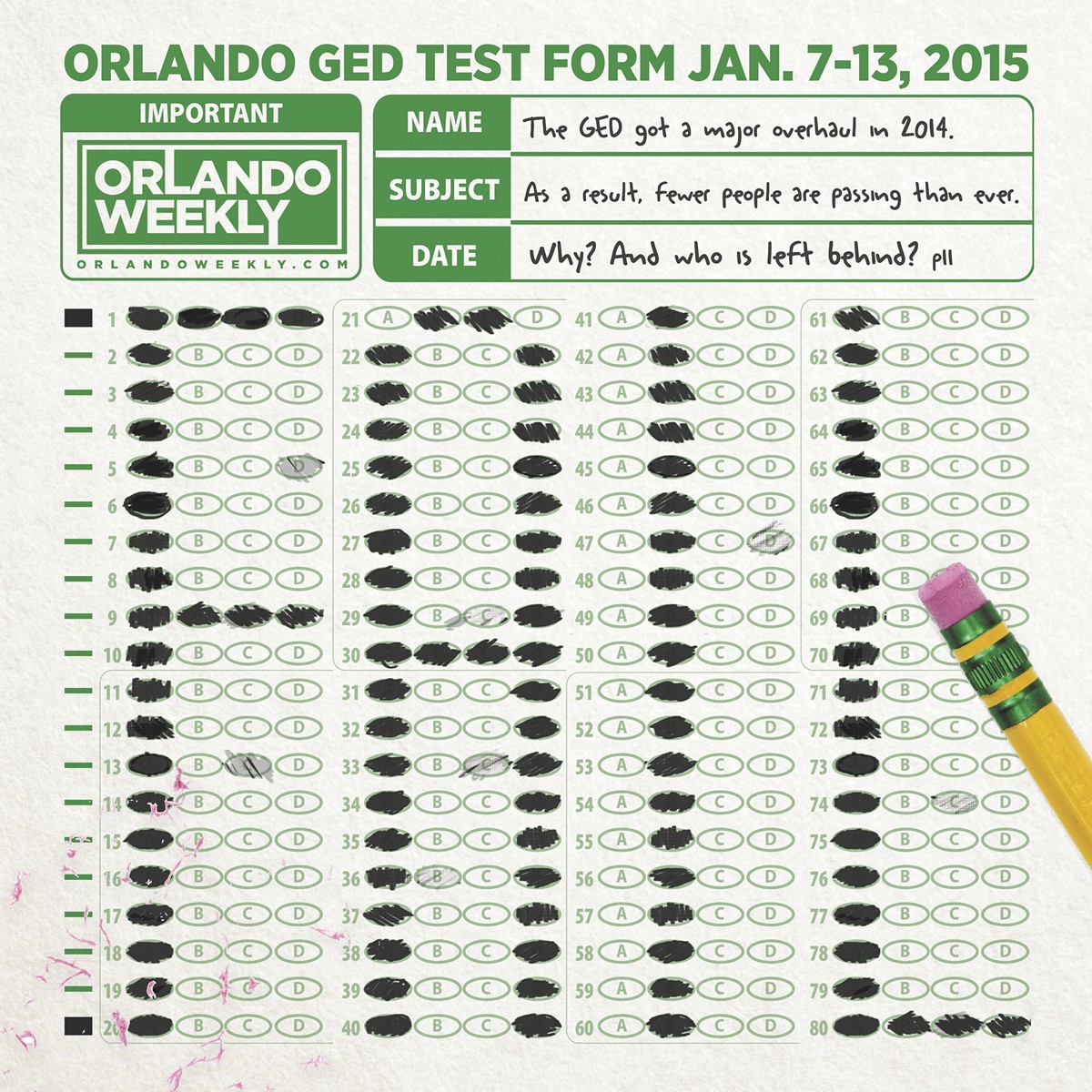Steve Miller has been studying for a few hours at the Seeds of Literacy tutoring offices in Cleveland. It is a cold and rainy Tuesday, and he is dressed in a multi-colored hoodie and block "C" Indians cap. He is 23, gets minimal Social Security Disability benefits for bipolar disorder, and has been working on his GED since February. By his own admission, he's not even close to passing any of the sections. Maybe math first, and the other three after that.
Miller wants to be a roofer or a tile layer or land some other construction job, and knows he needs the GED to get things moving. He dropped out of high school in the 10th grade, and "never did much of anything in school and got in trouble a lot." He says the test is "pretty hard," and says he would rather take it on paper, "because I think I write better and faster with a pen, and I'm just not very quick with a keyboard."
One of his instructors is Jim Redmond, a retired industrial sales rep who volunteers at Seeds of Literacy a few days a week. He has seen how the test changes have taken their toll on the students. "Even the occasional students we get who are extremely bright are taking very much longer," he says. "But it is even more difficult to keep the ones around who really have to work hard. It's tough to get people to commit to those for more than a year, and we are seeing that right now.
"The test is just not very practical," Redmond says. As he looks over 20 or so people studying, he says that "90 percent of the people here aren't going to college if they pass the test, and to say that the purpose of the GED is to prepare people for college is foolish. These people just want to improve their jobs. We used to have trade schools and apprentice programs, but now we have to measure people as if they are going to college. Well, not everyone is going to college and we shouldn't pretend everyone should."
And that is precisely the problem with the current test. If the previous version didn't serve the college-driven population well, the current version doesn't serve the job-driven population at all.
John Eric Humphries, a Ph.D. candidate in education at the University of Chicago and co-author of The Myth of Achievement Tests (University of Chicago Press, 2014) says the key warning sign is not how few are passing, but how few are taking the new test. "The most shocking thing is that [the number of] people taking it has plummeted," he says. "And we have to find out the reason for that. Is it the computer skills needed, the cost or the content, or a combination?"
Humphries thinks the problem is not so much the Common Core standards used for the questions, "because this is a fair test of what graduates of high school should know, and if that is how we determine math or English or computer skills, the GED should be a reflection of that. Over time the GED instructors and the students will catch up with that.
"But the real problem is that we use the same assessment for a job parking cars as we do for getting into college with the current GED," Humphries says. "Those are completely different tasks and different questions we should be using. But we use the same test for both."
There has been movement through the years to create different tests to measure different abilities, and the notion of a GED for college admissions and GED for work qualifications has been bandied about. Ten states have either opted out of the Pearson test and offer one of two competing tests, or offer all three.
In addition, studies have shown that prison recidivism rates decrease by about 30 percent if the incarcerated participate in educational programs while locked up.
"We have seen that doing education programs for those in prison is a good investment, but if they aren't seeing a reasonable payoff to their efforts, there is a real danger that they aren't going to perhaps buy into other changes they need to make," says Dr. Lois Davis, senior researcher at Rand Corp., who has studied education programs in prisons.
"If [a state] goes from more than 2,000 prisoners getting a GED each year down to a few hundred, there are just going to be many problems that the state has to deal with," Davis says. "The numbers are shocking; I am surprised the prison officials aren't sounding the alarms more on what is happening here."




















